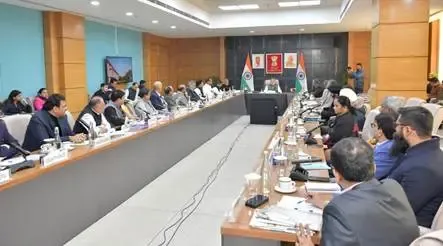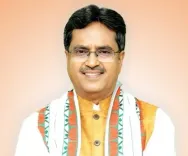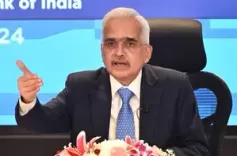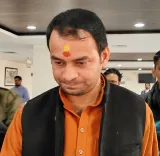India Becomes Second Country to Implement Electronic Personnel License for Pilots

Synopsis
Key Takeaways
- India is the second nation to launch EPL for pilots.
- EPL replaces traditional physical licenses with digital versions.
- Accessible through the eGCA mobile app, enhancing transparency.
- Anticipated demand for 20,000 pilots due to aviation growth.
- Supports environmental sustainability by reducing paper use.
New Delhi, Feb 20 (NationPress) Union Minister for Civil Aviation Ram Mohan Naidu officially unveiled the Electronic Personnel License (EPL) for pilots, positioning India as the second nation globally to implement this sophisticated system aimed at boosting the safety, security, and efficiency of the civil aviation industry.
China is the sole other nation to adopt this system.
The EPL serves as a digital alternative to the traditional physical licenses, ensuring secure access through the eGCA mobile application. This innovation aligns with the government's initiatives for “Ease of doing business” and “Digital India”.
“With the rapid expansion of India’s aviation sector, we anticipate a demand for around 20,000 pilots in the near future. Pilots are essential to civil aviation, and through eGCA and EPL, we are harnessing advanced, tech-driven solutions to improve their comfort and global employability, while granting real-time access to their credentials for enhanced security operations,” remarked the Civil Aviation Minister during the launch.
The EPL rollout follows an amendment from the International Civil Aviation Organisation (ICAO), which encourages member states to adopt electronic licenses for better security and efficiency. As global aviation leaders are still working on similar systems, India has taken a significant step forward in digital aviation solutions.
Previously, the DGCA issued licenses to pilots in a smart card format, having distributed 62,000 card licenses so far. In 2024, approximately 20,000 licenses requiring printed cards are expected to be issued, averaging 1,667 cards per month.
Naidu emphasized that the launch of the EPL will gradually reduce the need for printed cards, significantly simplifying the licensing process. Additionally, this transition is set to positively impact environmental sustainability by minimizing paper and plastic consumption.
He also pointed out other transformative initiatives aimed at reshaping Indian aviation through digital advancements, including the eGCA platform for efficient licensing, the Digital Sky Platform for drones, and the Electronic Flight Folder (EFF) for airline operations.
The launch of the Electronic Personnel License (EPL) signifies a pivotal moment in creating a globally recognized regulatory framework. It enhances India's stature as a global leader in aviation innovation and ensures a more secure and tamper-proof licensing system, the minister concluded.









